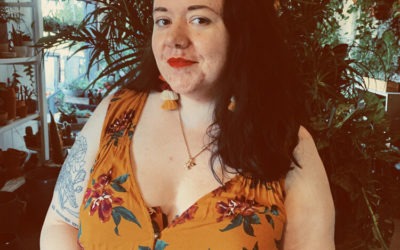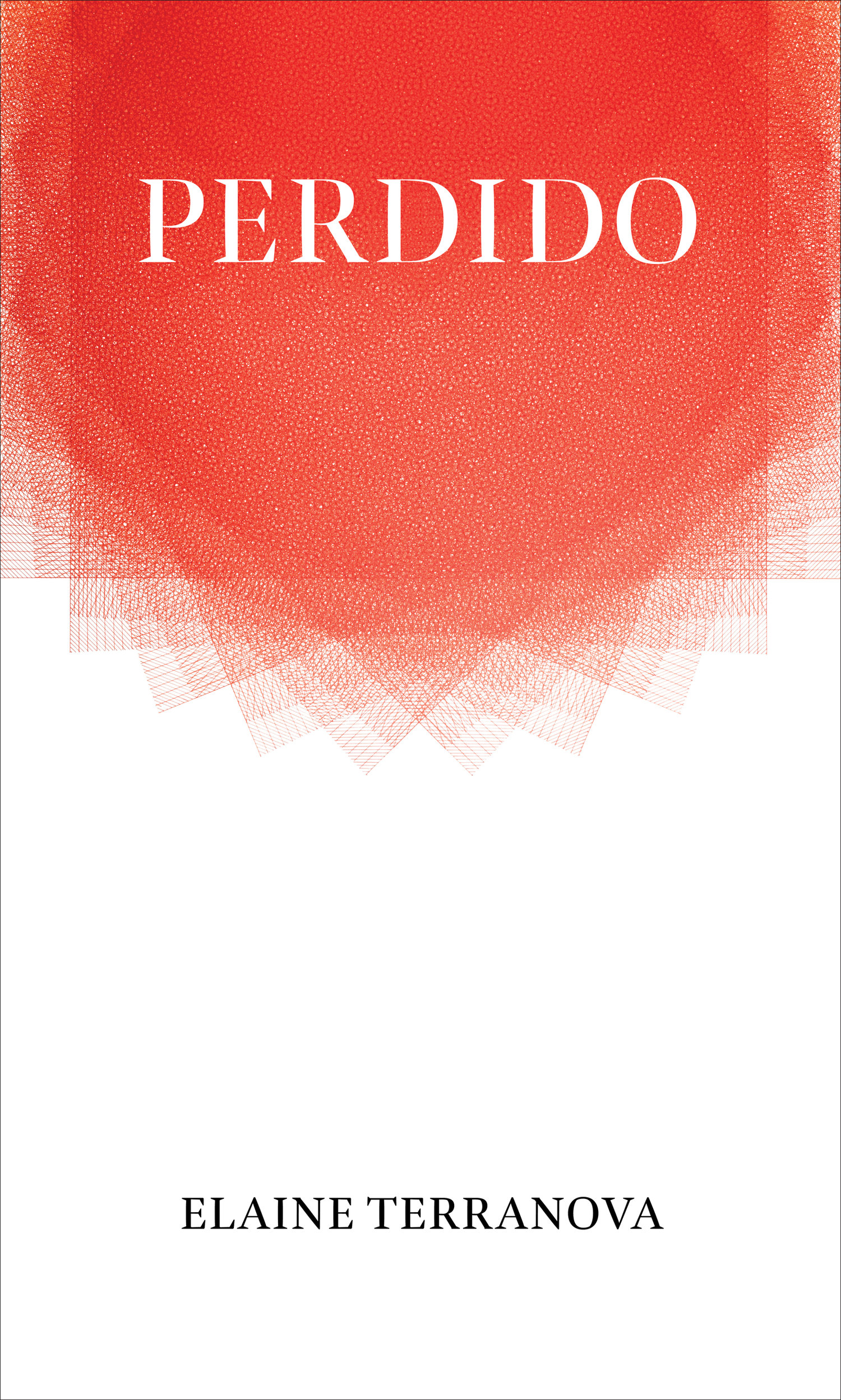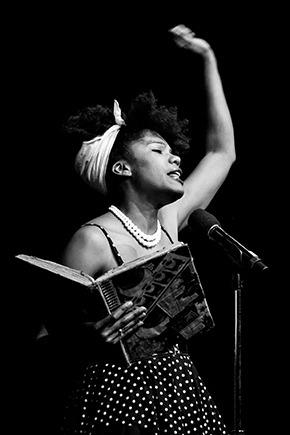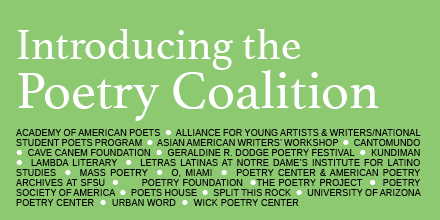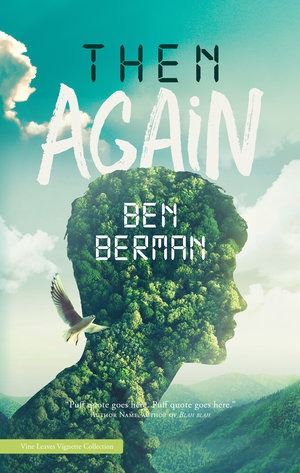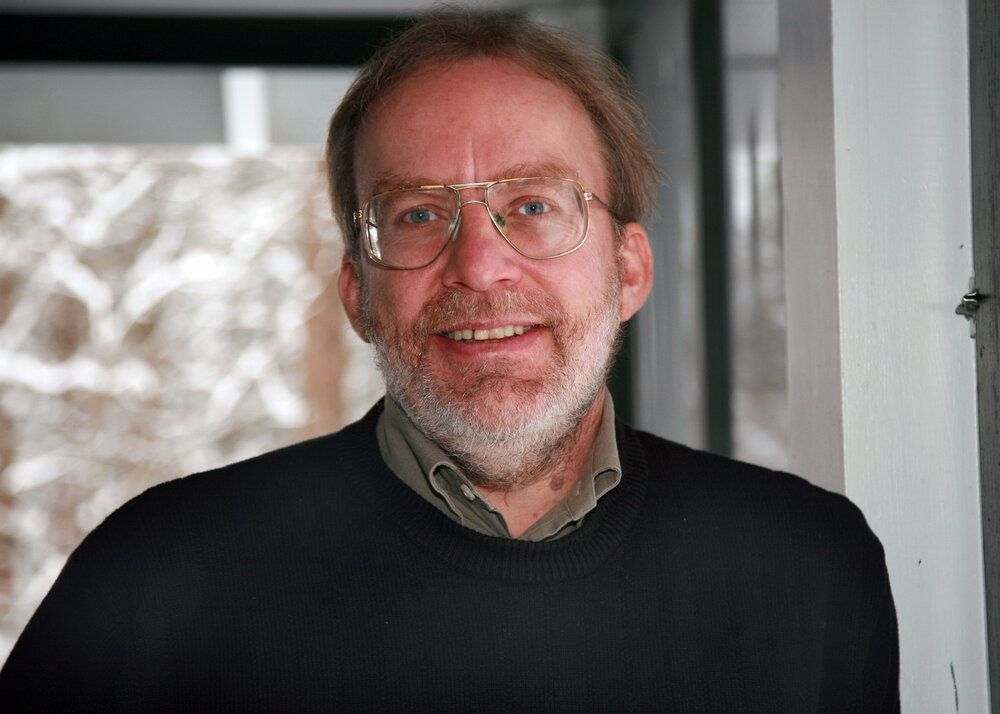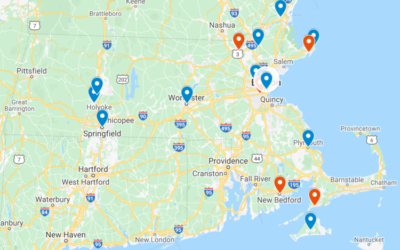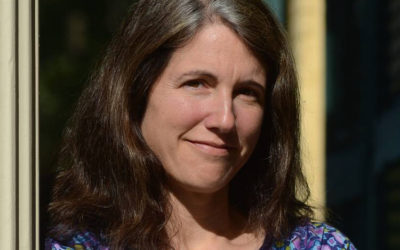When did you first encounter poetry? How did you discover that you wanted to write poems? My mother instilled my love of reading. She encouraged me to get my library card at a young age and to take out as many books as I wanted. Then I crashed my bike riding home from...
Interviews
Getting to Know Lyd Havens & Their New Book, I Wish I Wasn’t Royalty
When did you first encounter poetry? How did you discover that you wanted to write poems? I had a writing teacher in middle school who really loved poetry, and urged me to keep writing outside of school after he found out I was going through some really dark...
Getting to Know Carrie Bennett & Her New Book, Lost Letters and Other Animals
When did you first encounter poetry? How did you discover that you wanted to write poems? When I was growing up, I could get lost in books and this escapism was very comforting, but I didn’t write poetry until college. When I entered college majoring in music, I...
Small Press Interview Series: Grid Books
A conversation between Erica Charis-Molling and editor Elizabeth Murphy
Getting to Know Laurin Macios and Her New Book, I Almost Was Animal
For those who don’t know, tell us about your history with Mass Poetry. What have you been up to since your time as our Executive Director? I started working with Mass Poetry in February 2013 as the temporary Coordinator of Outreach, Development, and Volunteers for the...
10+ Questions with Krysten Hill & Kurt Klopmeier
10+ Questions! is a series in which we catch up with poets who have been featured in our programming. Below, we speak with Krysten Hill and Kurt Klopmeier.
5+ Questions with Jennifer Benka
“5+ Questions With” is a new series in which we learn more about Mass Poetry’s partners throughout the region, particularly those that are also members of the Poetry Coalition. This week we’re hearing from Jennifer Benka of the Academy of American Poets, which oversees the Poetry Coalition.
10+ Questions with Ben Berman
10+ Questions! is a series in which we catch up with poets who have been featured in our programming. In this installment, we hear from Ben Berman, who recently led our 2018 Professional Development Summer Seminar.
5 Questions with Meg O’Brien
5+ Questions With” is a new series in which we learn more about Mass Poetry’s partners throughout the region. This week we’re hearing from Meg O’Brien, the Interim Co-Director of Education at Huntington Theatre Company.
5+ Questions with Janaka Stucky
“5 Questions With” is a new series in which we learn more about Mass Poetry’s partners throughout the region. In this interview, we spoke with Janaka Stucky, Publisher at Black Ocean. Tell us a bit about your organization’s engagement with poets and poetry, and why a...
Getting to Know Gary Metras and His New Book, White Storm
Available now from Presa Press When did you first encounter poetry? How did you discover you wanted to write poems? The songs of Little Richard, Chuck Berry, Dion and the Belmonts were the first poems I paid attention to, though none of them would admit they were...
Getting to Know Sharon Tracey and Her New Book What I Remember The Most Is Everything
Available now at Amazon When did you first encounter poetry? How did you discover that you wanted to write poems? I fell in love with poetry as a high school senior in Ms. Benz’s English class. It was an immediate and sudden revelation. We were each assigned a poet to...
Getting to Know Peter Filkins & His New Book, Water/Music
When did you first encounter poetry? How did you discover that you wanted to write poems? I began writing poems in a high school creative writing class. Back then I thought I wanted to write fiction, but as soon as I started writing poems, I was hooked. There...
Getting To Know Jennifer Jean & Her New Book, Object Lesson
When did you first encounter poetry? How did you discover that you wanted to write poems? I slunk into my first open mic when I was 18. Some guy read and everyone responded with “Mmm”s and claps and snaps. People started talking with each other about his poem! I...
Getting to Know Dennis Sweeney & His New Book, In The Antarctic Circle
When did you first encounter poetry? How did you discover that you wanted to write poems? My journey into poetry began with my love of writing as a kid. After that first magical encounter, my writing was encouraged as an extracurricular activity, dropped during my...
Getting to Know Anna Maria Hong & Her New Book, Fablesque
When did you first encounter poetry? How did you discover that you wanted to write poems? I first encountered poetry, as many do, in children’s books: nursery rhymes and other illustrated poems and stories in verse. I loved the music and the wordplay, rhymes and puns...
Getting To Know Liz Pozen & Her New Book, Salami
When did you first encounter poetry? How did you discover that you wanted to write poems?I've always thought of myself as a visual artist, not a writer. About seven years ago I was overcome with feeling while watching old family movies. Crying, exhausted, I lay down;...
Getting To Know Jacqueline Balderrama & Her New Book, Now In Color
When did you first encounter poetry? How did you discover that you wanted to write poems?I recall nursery rhymes my mother would read and learning to recite Robert Frost’s “Stopping by Woods on a Snowy Evening,” in elementary school. I think the encounter that was a...
Meet Sharon Chace, Rockport’s Poet Laureate
Poets Laureate Across Massachusetts A note from the interviewer, Alice Kociemba Each of the Commonwealth’s poets laureate brings his or her special perspective to the post. Rockport’s poet laureate, Sharon Chace is a “bridge-builder” who has combined her interests in...
Meet Porsha Olayiwola, Boston’s Poet Laureate
Poets Laureate Across Massachusetts A note from the interviewer, Alice Kociemba Porsha Olayiwola, the city of Boston’s current Poet Laureate, reflects on how a local laureate can become an advocate for poetry in schools and in correctional institutions, certainly...
Getting To Know Karen Skolfield & Her New Book, Battle Dress
When did you first encounter poetry? How did you discover that you wanted to write poems? I read dead poets and wrote a lot of blushingly bad poetry on a manual typewriter in high school, and then in college I lucked into a series of poetry classes with Chris...

